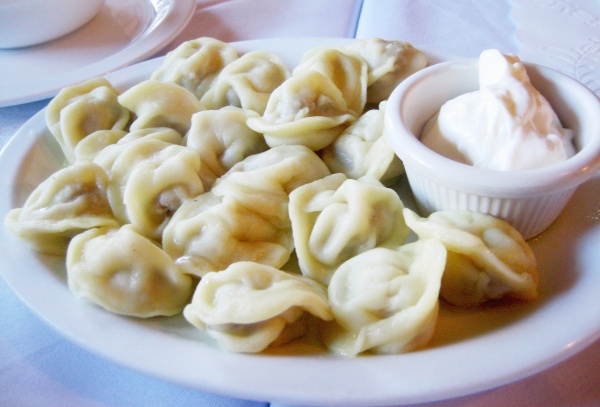Facts About Pelmeni
Pelmeni are a cherished type of Russian dumpling made with a simple, thin, unleavened dough that encases a savory filling. Though there's an ongoing debate about their exact origins, both the Ural and Siberian regions of Russia proudly claim credit for this delightful dish. Pelmeni are a staple in Russian cuisine, typically stuffed with minced meat or mushrooms and seasoned with spices like black pepper, onions, and garlic. They are often served with toppings such as sour cream, mayonnaise, dill, or vinegar.
The dough for pelmeni is usually crafted from a basic mixture of flour and water, though some recipes also include eggs for added richness. The filling varies widely, with traditional recipes often featuring venison in colder regions. In some areas, ingredients like cabbage, tomato, and horseradish are also used. The quality of the dough can be influenced by factors like temperature and humidity, making each batch unique.
Tracing the origins of pelmeni takes us back to ancient Greece, with the Ural region often cited as their birthplace. The name "pelmeni" comes from the Finno-Ugric Komi and Udmurt languages, meaning "ear bread." It's believed that pelmeni were introduced to Siberia by the Mongols and quickly became popular among Russian hunters, as they provided a practical way to preserve meat during the long, harsh Siberian winters.
Pelmeni belong to the broader dumpling family and share similarities with Ukrainian varenyky and Polish pierogi. They also have relatives in other cultures, such as Mongolian bansh, Chinese jiaozi, and Turkish manti. The main differences lie in the thickness of the dough, the ratio of filling to dough, and the specific fillings used.
In Siberia, pelmeni are traditionally frozen outdoors for preservation and convenience. When ready to eat, they are boiled in salted water or broth and served with toppings like butter, sour cream, or various sauces. Some people like to fry them after boiling or add them to soups. You can find store-bought pelmeni in Russian and Ukrainian food stores, where they are produced using specialized machinery. While these store-bought versions are seen as convenient, many still consider homemade pelmeni to be more nutritious and wholesome.

 Norway
Norway